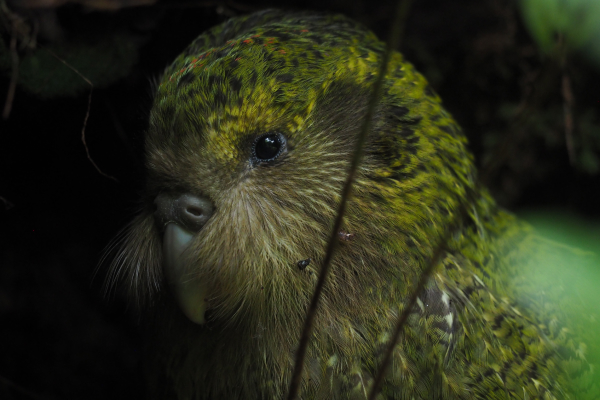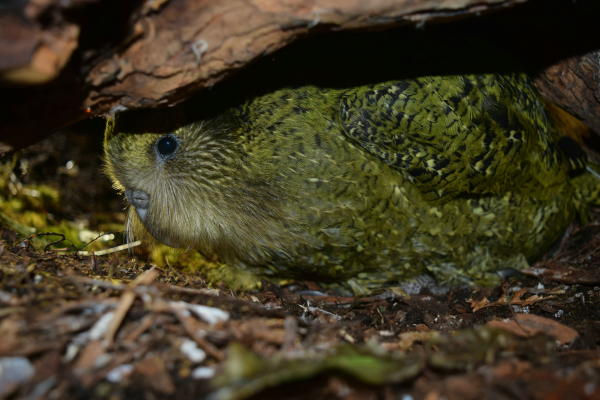Back in June 2021, a bumper breeding season was predicted by Kākāpō Rangers from the Department of Conservation (DOC). Kākāpō are particular about their breeding conditions and will only breed if 8% or more rimu (their favourite food) tips bear fruit. The higher the percentage, the more likely females will be in the mood to breed. And in June 2021 conditions were looking good with 14% - 31% of rimu tips bearing fruit.
The prediction of a successful breeding season was rewarded with 55 chicks fledging this month, adding to the official number, making it 252 known kākāpō alive today. What’s fledging? For most birds it’s when the young ones develop wing feathers that are large enough for flight. But because kākāpō are flightless, fledging is when chicks do not return to the nest during the daytime for the very first time. Chicks will often explore outside at night before this and sometimes even return back to the nest again after they’ve fledged. This usually happens when bad weather hits and their new roosts aren’t quite up to scratch - they’ll head back to where they know it’s nice and dry.
Meridian has been a proud National Partner of the Kākāpō Recovery Programme since 2015 and we’re passionate about contributing to the growth of the kākāpō population by helping DOC fund research and pioneer conservation techniques relating to genetics, nutrition and disease management.
Read more stories about this taonga species here.

